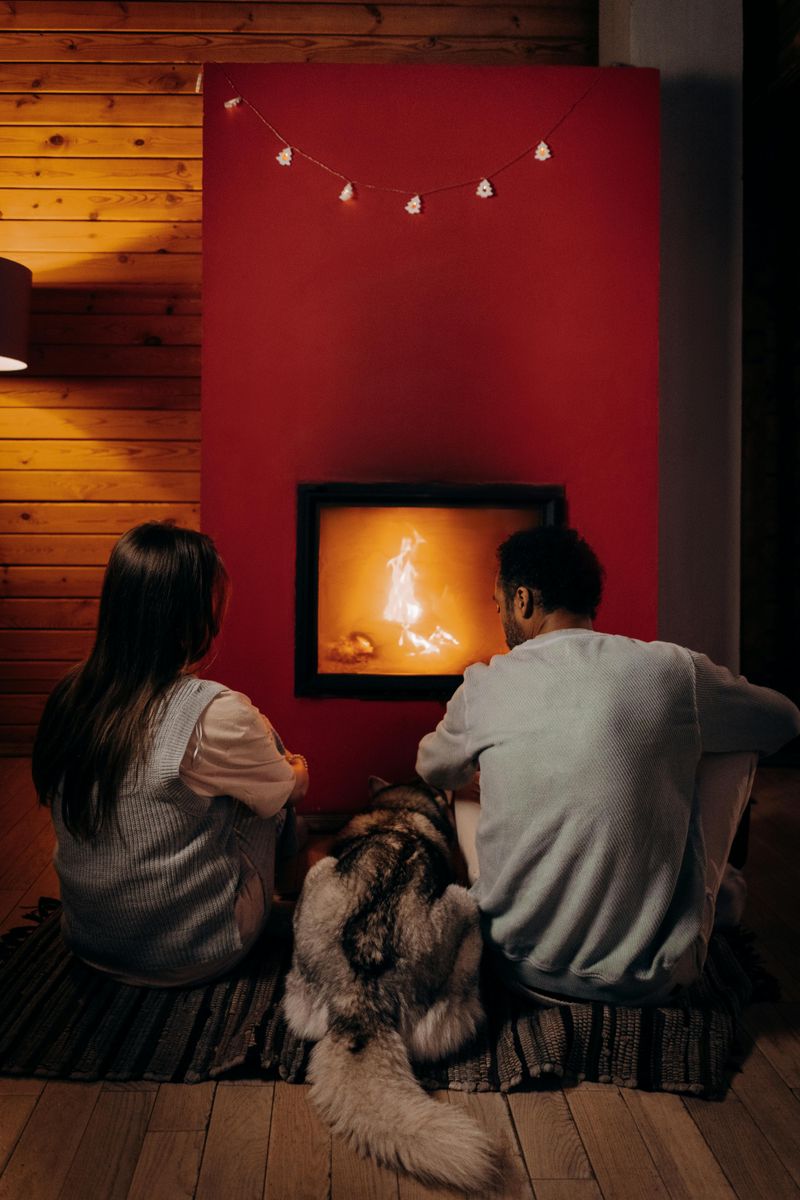13 Signs You’ve Outgrown Your Partner Emotionally

Relationships go through various phases, and sometimes partners may find themselves on different emotional wavelengths. Outgrowing a partner doesn’t suggest a lack of love or care but points to an emotional evolution where one person progresses while the other remains stagnant. Recognizing these signs can be challenging yet liberating, allowing for personal growth and self-awareness. It’s crucial to assess these aspects honestly to determine if the relationship still fulfills your emotional needs. Here, we explore thirteen distinct signs that you may have emotionally outgrown your partner, each revealing the subtle yet impactful shifts that signal change.
1. Deep conversations disappear

Remember those long nights filled with deep conversations about dreams and fears? Now, you find yourselves struggling to discuss even mundane topics. The once vibrant exchange has faded into awkward silences, and small talk fills the void.
The shift from meaningful dialogue to surface-level chatter can create a sense of disconnect. It feels as though the bridge that once linked your inner worlds is crumbling. When words fail to connect, the emotional distance grows wider.
Without those enriching conversations, the relationship may begin to feel hollow, leaving you yearning for intellectual and emotional stimulation elsewhere.
2. You feel less safe sharing your heart

You once bared your soul to your partner, trusting them with your deepest vulnerabilities. Now, the fear of judgment or indifference holds you back. The subtle cues that once offered comfort seem absent, leaving you guarded.
This emotional retreat signals a loss of safety within the relationship. The absence of empathetic listening creates an invisible wall, where sharing feels like a risk rather than a relief.
Emotional safety is crucial for a thriving connection. When it diminishes, intimacy fades, and the relationship may suffer from a lack of genuine understanding and support.
3. You secretly envision life without them

Imagining a life without your partner no longer fills you with dread but rather a sense of curiosity or relief. These quiet thoughts become a secret sanctuary, where possibilities seem endless and untethered.
The fantasy of a solo journey might signal a deep-rooted desire for independence and self-exploration. It’s a yearning to rediscover your identity outside the confines of the relationship.
While fantasies alone don’t dictate reality, they can be a powerful indicator of underlying dissatisfaction, urging you to reflect on what truly fulfills you.
4. You hesitate making plans together

Discussing future plans used to fill you with excitement, but now it feels more like a chore. The thought of planning vacations or long-term goals together is met with reluctance or avoidance.
This hesitation may arise from a lack of shared vision or mutual enthusiasm. It feels as if your paths are no longer aligned, each choosing a different direction.
Avoiding these discussions can be a sign of emotional disconnection, where the future seems uncertain and less intertwined. It’s a realization that your dreams no longer coincide with theirs.
5. You sense their growth is stuck

You’ve embarked on a journey of self-discovery, embracing new challenges and experiences, yet your partner remains unchanged. Their resistance to growth becomes apparent, as they cling to old habits and routines.
This stagnation can create an imbalance, where your evolution feels unsupported. It feels like you’re pulling in opposite directions, with one reaching forward while the other stands still.
Growth is a natural part of life, and when one partner advances while the other resists, it may lead to frustration and emotional disconnect.
6. Intimacy feels forced or hollow

Intimacy once thrived on genuine connection and spontaneous passion. Now, it feels like a routine obligation, devoid of genuine warmth or excitement. The tender moments have faded, replaced by mechanical gestures.
This emptiness in physical closeness reflects a deeper emotional void. It signifies a disconnect that transcends the physical realm, impacting emotional and spiritual bonds.
When intimacy loses its authenticity, it can leave both partners feeling unfulfilled, yearning for a connection that resonates on a deeper level.
7. You feel more like roommates than lovers

Living together once felt like a shared adventure, but now it resembles mere cohabitation. The spark of romance has given way to a routine of shared chores and responsibilities.
This transition from lovers to roommates may create a sense of monotony, as the relationship loses its playful and passionate essence. The emotional connection seems to fade, leaving a functional partnership.
Without the warmth of romance, the relationship may feel stagnant, lacking the vibrancy and excitement that once defined it.
8. You feel lonelier with them than alone

There’s a unique kind of loneliness felt when you’re beside someone but emotionally worlds apart. You find yourself longing for solitude, where your thoughts and feelings feel more acknowledged.
The presence of your partner no longer offers comfort or companionship. Instead, it amplifies the sense of isolation, where emotional needs remain unmet.
This poignant loneliness may urge you to seek fulfillment outside the relationship, realizing that being alone is more nurturing than being with someone who doesn’t understand you.
9. You stop defending the relationship to others

In the past, you might have leapt to defend your relationship against any criticism. Now, you listen in silence or even agree with friends or family who voice concerns.
This lack of defense signals an internal acknowledgment of the relationship’s limitations. You might find yourself questioning its viability, recognizing truths you’ve long ignored.
Relinquishing the urge to defend may be a powerful realization, where the relationship’s flaws become undeniable, prompting introspection and potential change.
10. You envy others’ connection

Watching other couples share laughter and intimacy can evoke a pang of envy. Their visible connection highlights the emotional distance in your own relationship.
This longing for what others have may reveal an unmet need for connection and joy. It becomes a mirror reflecting the absence of these qualities in your relationship.
Acknowledging this envy can be a catalyst for change, urging you to seek a relationship that fulfills your emotional desires.
11. You hide parts of yourself

In the quest to maintain harmony, you find yourself concealing parts of your identity. Your dreams, ambitions, or newly discovered passions remain unspoken, hidden in the shadows.
This act of hiding stems from a fear of conflict or misunderstanding. It creates an internal conflict, where authenticity struggles against the desire for peace.
Living in a relationship that stifles self-expression can lead to a sense of suffocation, where personal growth feels compromised.
12. Arguments feel repetitive or pointless

Fights that once led to resolution now feel like a broken record, replaying the same grievances. The repetitive nature of these arguments renders them futile and exhausting.
This cycle of conflict without closure indicates a deeper communication breakdown. It becomes a loop where nothing changes, leaving both parties frustrated and weary.
When arguments cease to bring understanding or growth, they may signify a relationship stuck in perpetual misunderstanding.
13. They don’t notice who you’ve become

You’ve evolved, embracing new interests and perspectives, yet your partner still perceives you through an outdated lens. Their inability to recognize your growth creates a sense of invisibility.
This oversight can leave you feeling unseen and undervalued, yearning for acknowledgment and appreciation. It highlights a disconnect between your current self and the person they believe you to be.
When your growth goes unnoticed, it may lead to dissatisfaction, prompting you to seek relationships that celebrate your evolution.

Comments
Loading…